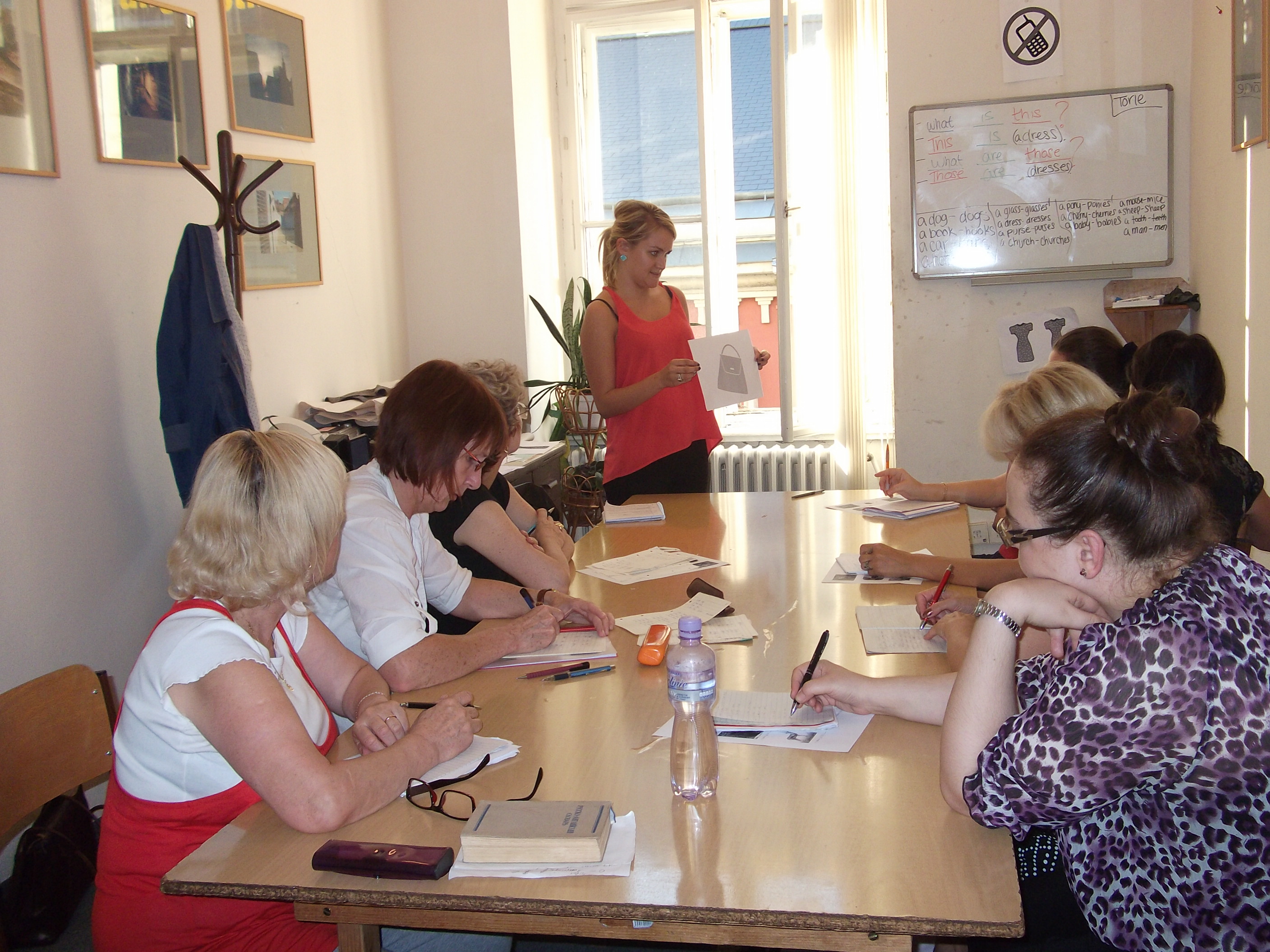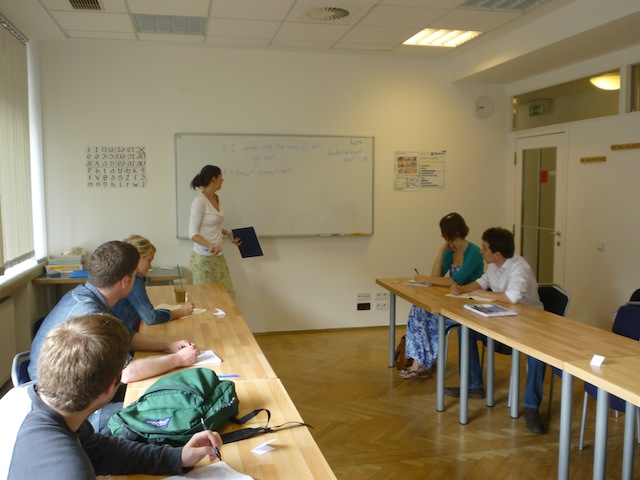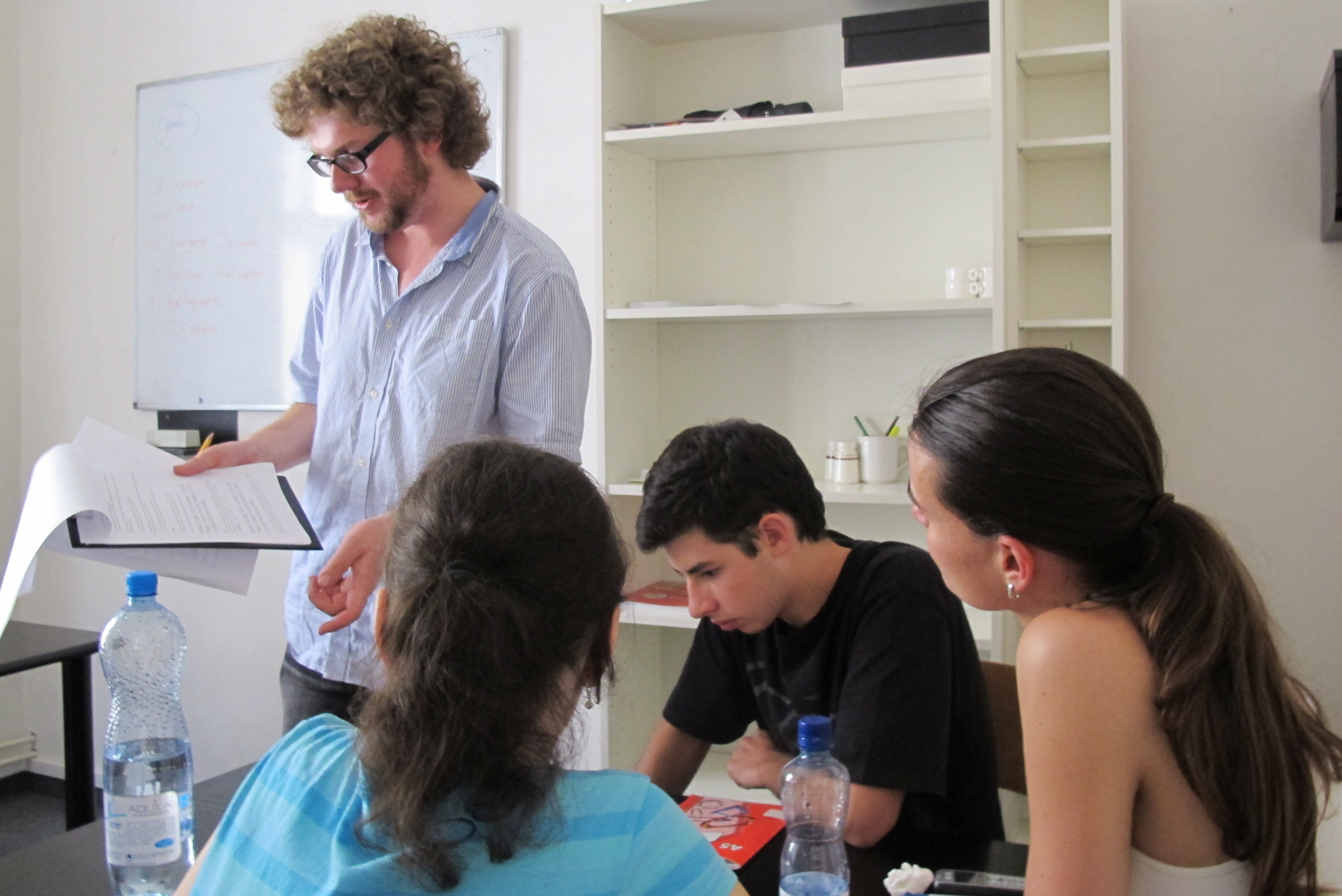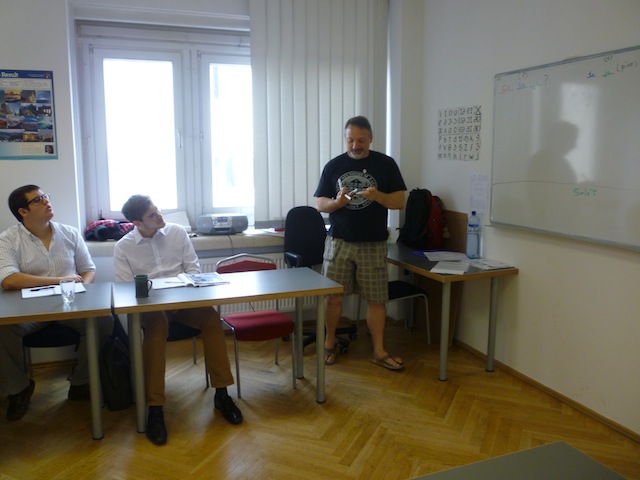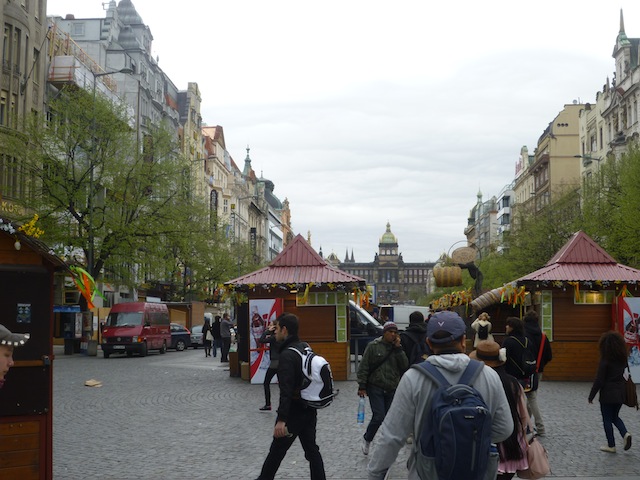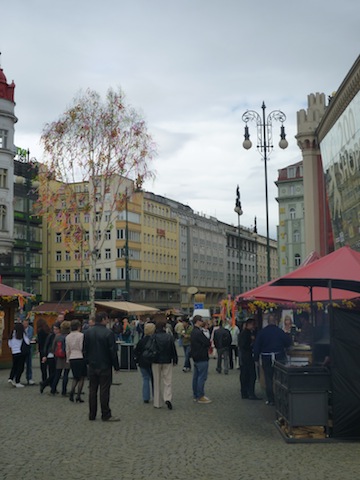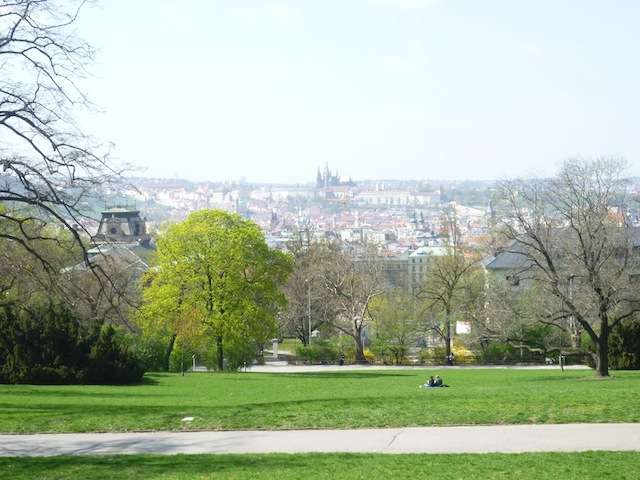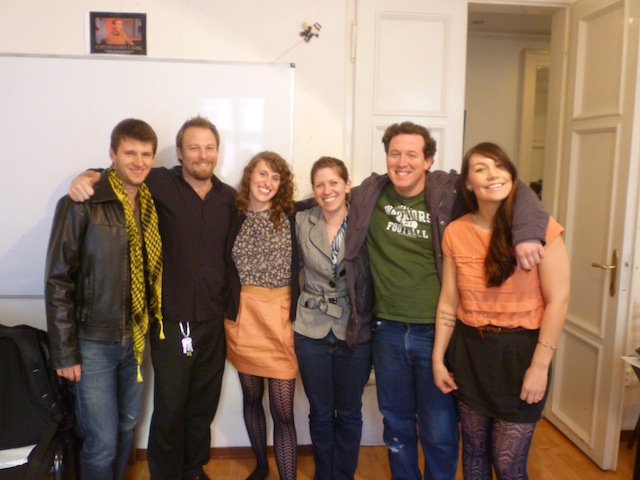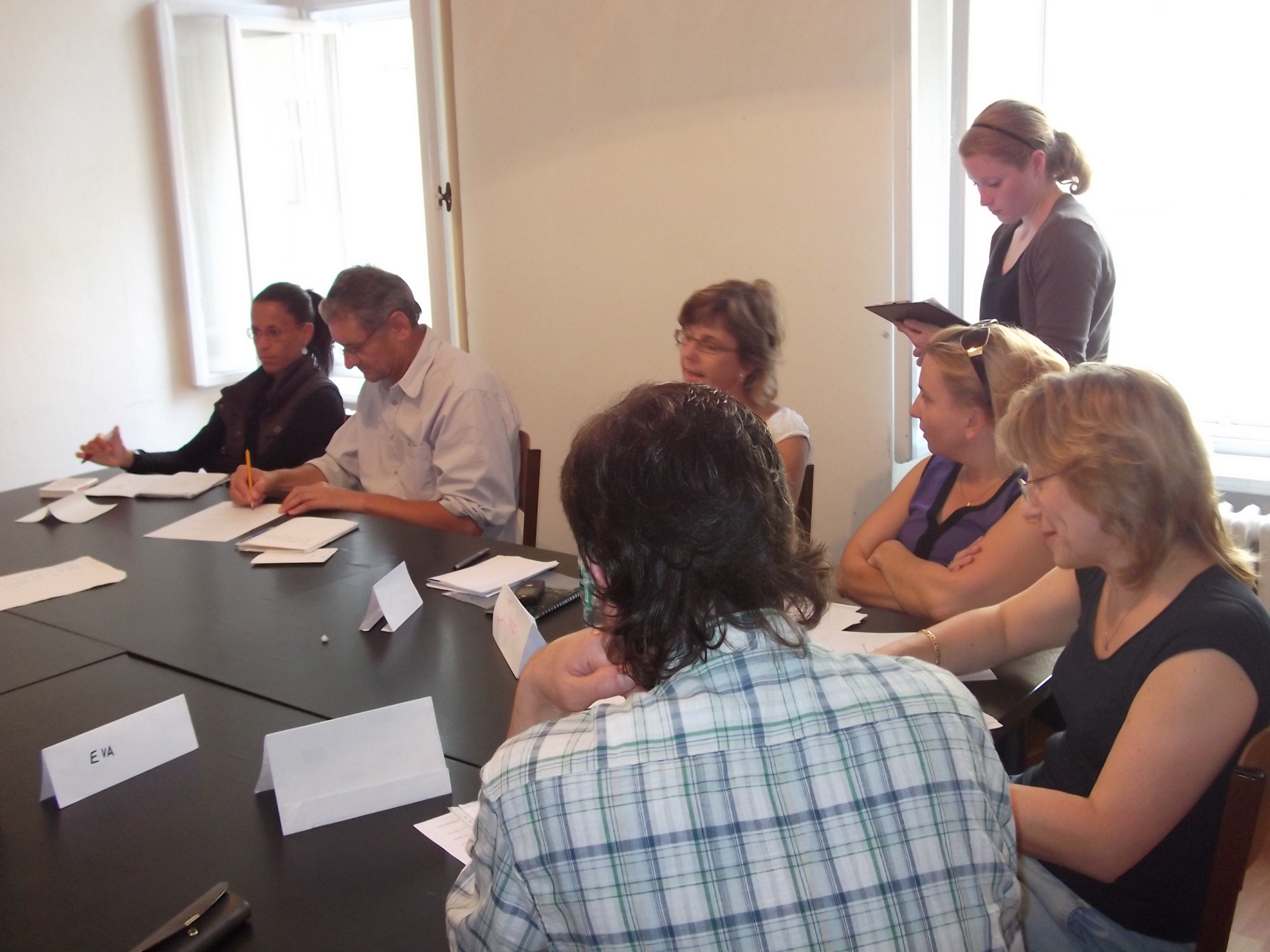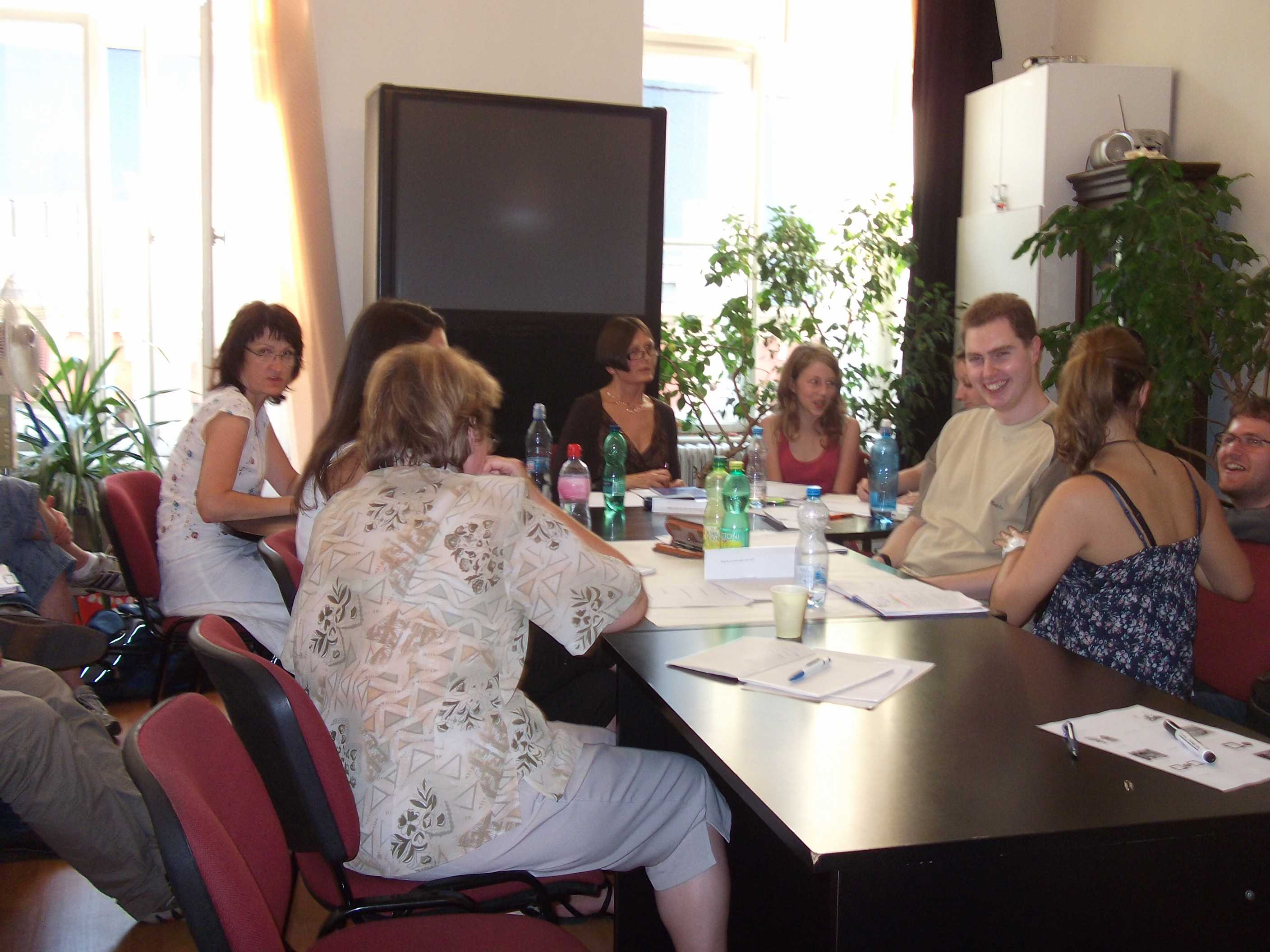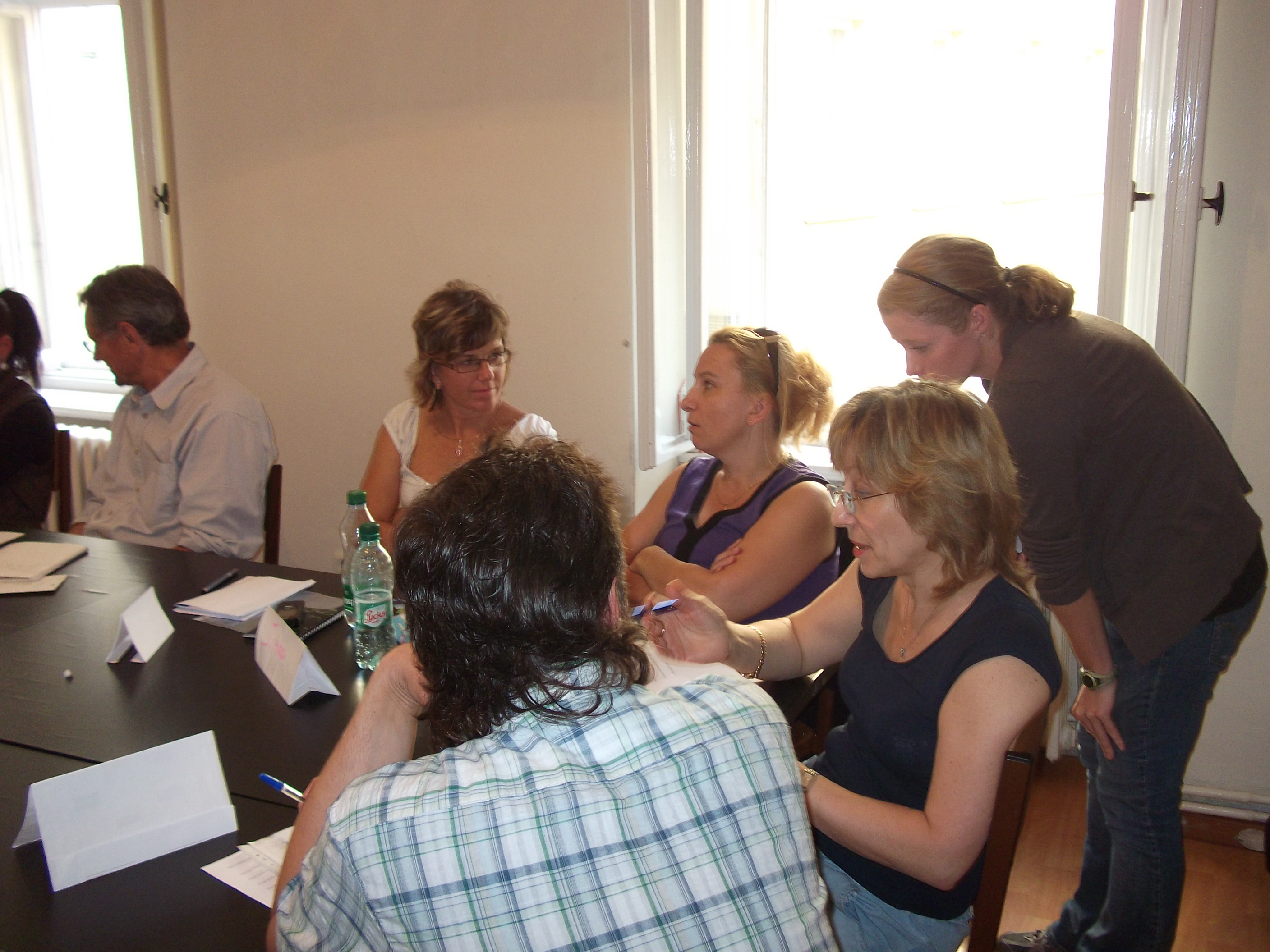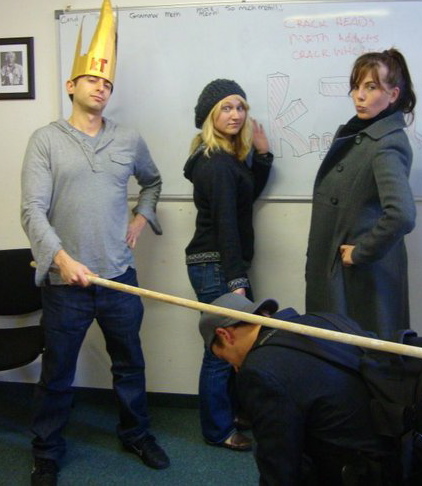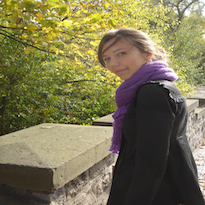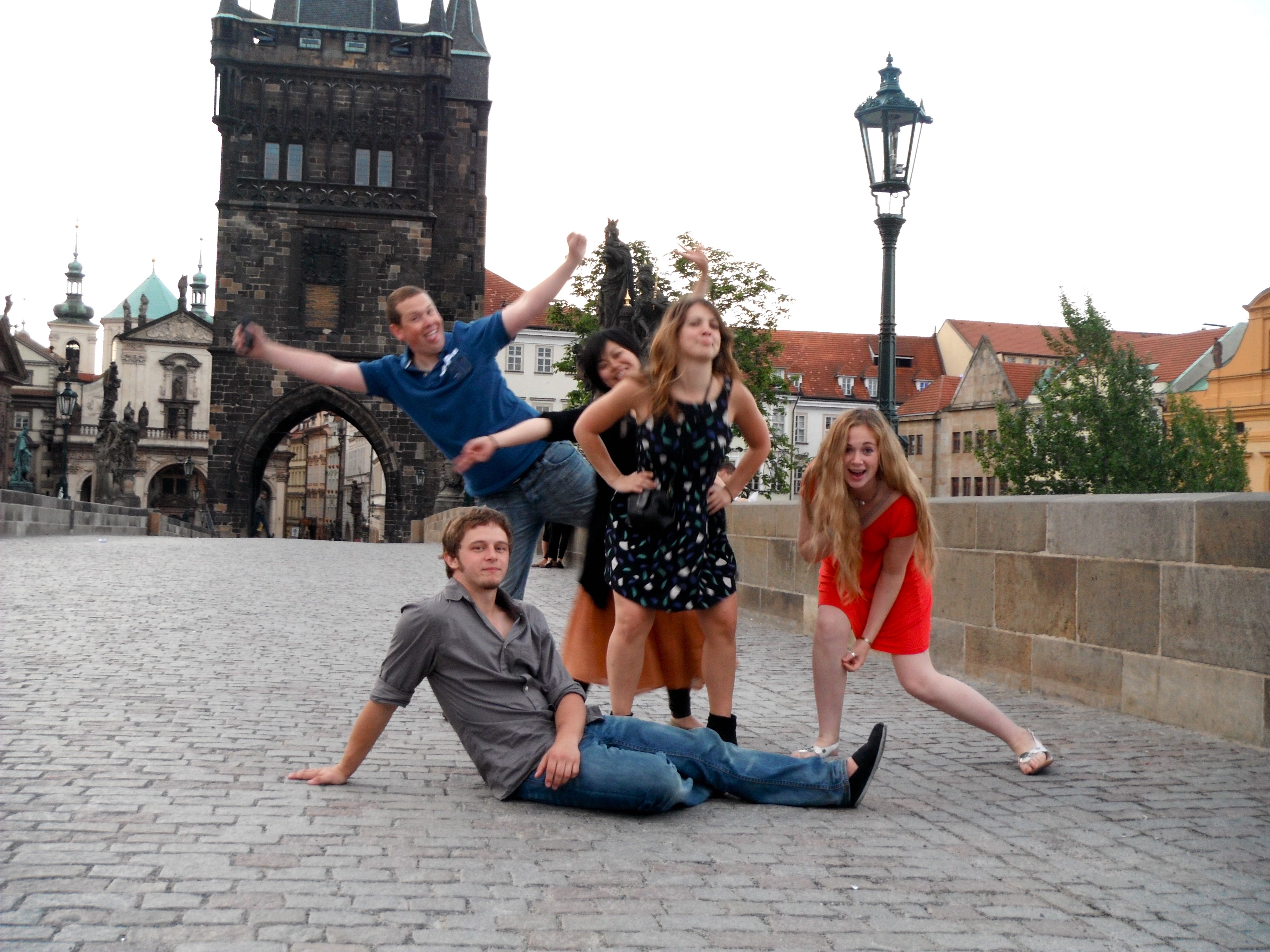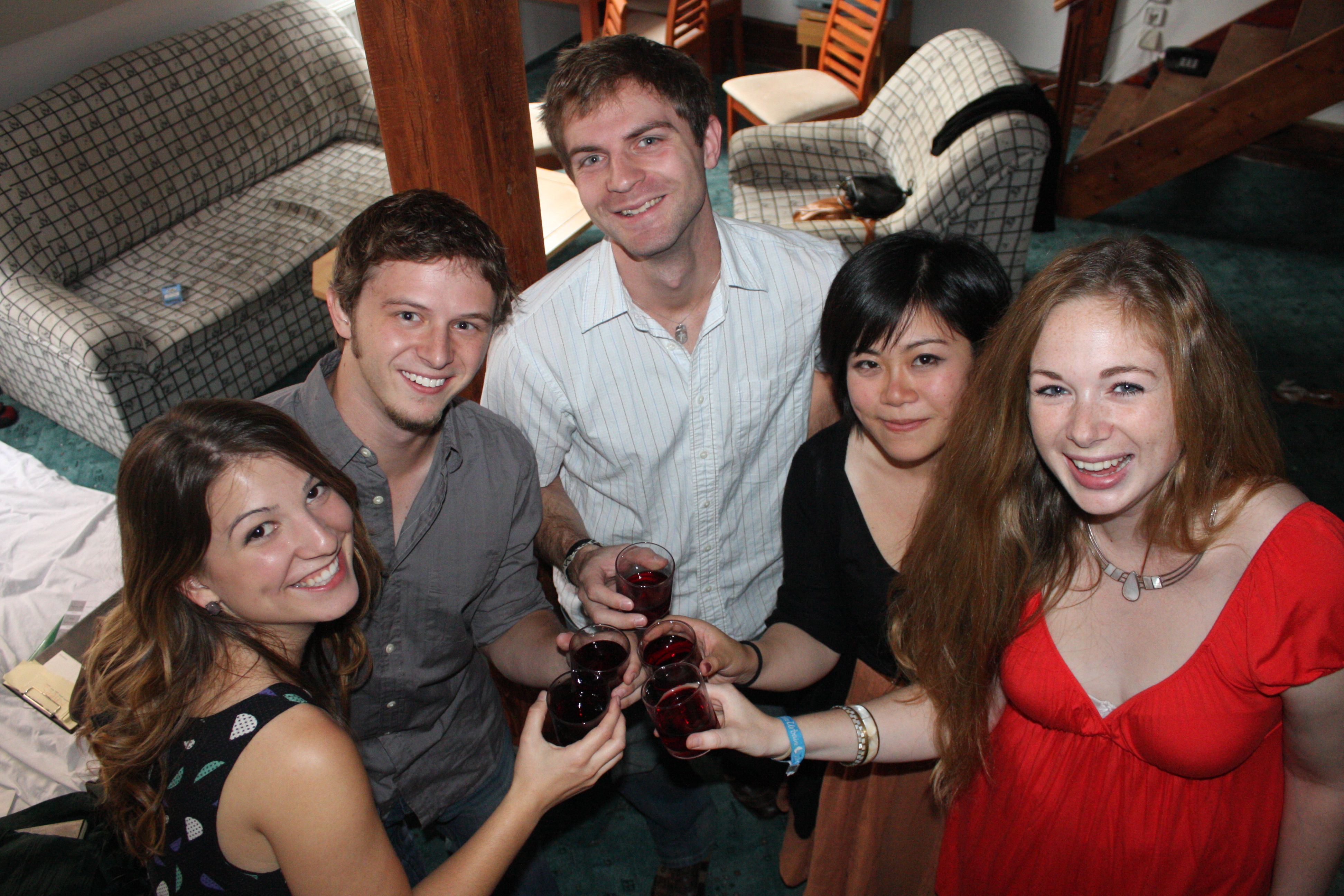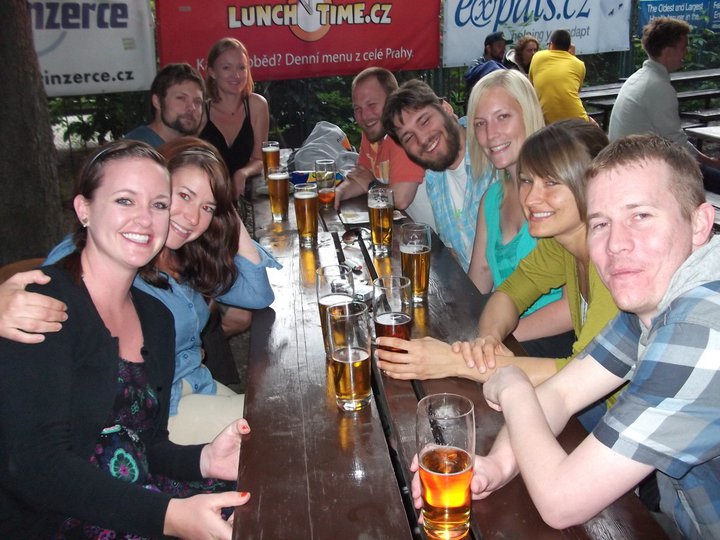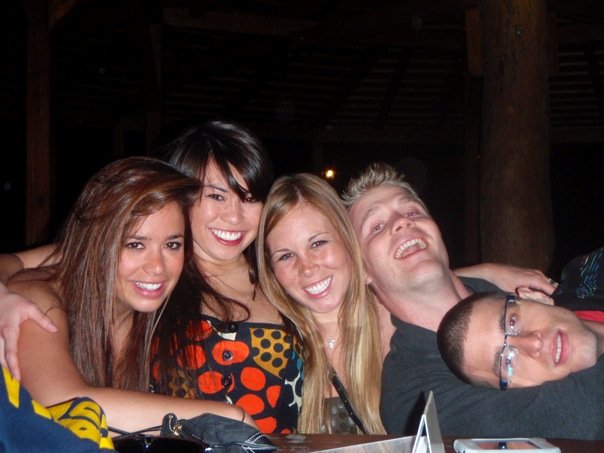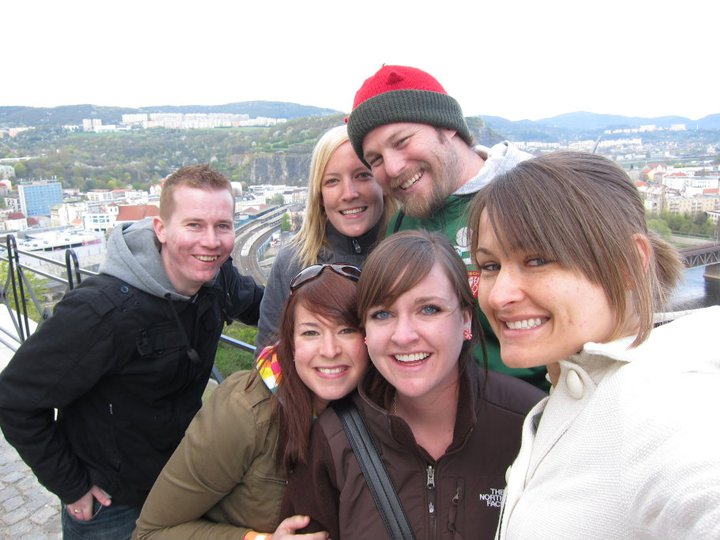The cost of living in Prague is relatively cheap. As with any city the price of a flat (apartment) depends on its size and location. Many teachers choose to live in one of two different areas in Prague called Vinohrady or Letna. Letna is typically a bit less expensive than Vinohrady. Both areas are of about equal distance to the city center. Many teachers choose to live in one of these two areas based on their central location as well as their convenient access to restaurants and bars. The average price for a room in a shared flat in Vinohrady or Letna is approximately 8,000 crowns per month (380 USD). There are also many other great areas to live in Prague. These other areas are usually less expensive and a room in a shared flat may be approximately 5,000 - 7,000 crowns per month (238 - 334 USD).
It is quite easy to find a beautiful place to live and a supportive work environment. The majority of teachers find employment within two weeks of graduation. As far as what your work week will be like, it all depends on how interested you are in teaching. Some graduates only plan on teaching a little (less than 15 hours a week) and are more interested in other aspects of living abroad, like travelling. These students usually supplement their income with savings. Other graduates are really interested in working full time (20 hours or more) which is what it takes to have enough money for rent, food, and entertainment.
The quality of your teaching will depend primarily on two factors: the first is how much effort you put into your new career. The second is where you will actually be working. These two conditions will be further explained to you during the course. The thing to remember is that no two teachers have the same experience. Teaching abroad is flexible. Some graduates teach mostly mornings while others teach during the night and others throughout the day at different times. In conclusion, the majority of teachers living here are happy with what they're teaching and are having a wonderful time doing it.
Teacher's salaries are usually about 20,000 - 25,000 crowns ($950 - $1,190 USD) per month for full time. That equals to 240 000 - 300 000 crowns (11 428 - 14285 USD) per year. Full time work includes about 25 teaching hours per week. Although this does not seem like many hours, take into consideration the time you will spend on public transportation commuting from one class to another and preparing each class.
Groceries for one week cost about 700 crowns ($34 USD). Perishable products are quite fresh in Prague and therefore expire quickly. Make sure to check the dates on items like milk, yogurt, and cheese. Some of the major grocery chains include Tesco, Albert, and Billa.
Dinner and a movie are usually cheaper in Prague. An average dinner per person is about 150 crowns (7 USD) and a movie ticket is about 130 crowns (6 USD). Tipping is practiced in Prague, but is generally only about 10%. Beer and wine are cheaper as well. Mixed drinks cost about 90 crowns (4 USD) and shots are about 50 crowns (2.5 USD). Make sure to experience the local Czech shot called Becherovka.
One of the few items that is more expensive here than in other countries is the clothing. You can find stores with inexpensive clothing, but on average the cost of clothing is higher. There are many second hand stores in Prague that offer better deals than the department stores so make sure to take advantage of those. Generally, prices in the Czech Republic are usually very low and there is always something fun to do for free.
Transportation & Communication
Transportation in Prague
Prague is an extremely easy city to get around in. There is an extensive network of metros, trams, and buses that take you wherever you need to go. Most teachers purchase a monthly pass for 460 crowns (22 USD). This pass allows you to travel freely around the city on any form of transportation. As a teacher you can expect to be on the public transport system several times a day making the monthly pass worth the investment. Individual tickets can also be purchased for single uses. The cost of an individual ticket varies depending on where you are going, but is usually about 14 – 20 crowns (less than a dollar). Individual tickets can be purchased at every metro station.
To validate one of these tickets simply insert it into a yellow box at the top of the metro station. The yellow validation boxes are also found on trams and buses. If you do decide to purchase a monthly pass you do not have to validate it or show it to anyone unless you are asked. Unlike other cities there are no turn styles or other obstacles you must pass to enter metro station. Prague enforces purchased tickets by placing ticket inspectors at random locations. You can find these inspectors on all forms of transportation. These men, and occasionally women, will show you a badge and ask to see your ticket or pass. If you do not have a ticket or pass they will ask you to pay a penalty of 500 crowns to them directly (23 USD). Make sure to get a receipt to ensure they are not scam artists.
Metros stop running at 12:00am, which can pose a problem when trying to get home late. Prague does offer night trams; however, they are often full and it may take a long time to get home. Taxis can be found throughout the city. Calling for a taxi is significantly cheaper than jumping in the first one you see. City Taxi and AAA Taxi are the least expensive companies.
Traveling outside of Prague
Traveling outside of Prague within the Czech Republic is extremely cheap. Trains and buses are constantly leaving Prague going to many different locations within the country. To travel to most cities within the Czech Republic it is no more than 300 crowns (14 USD). Traveling outside the Czech Republic can be a bit more expensive and the price of a ticket depends on where you are going.
Communication
Communication is definitely a must as a teacher. Vodafone, T-Mobile, and O2 are the three major service providers in Prague. All three allow you to pay as you go without signing a contract. Most teachers tend to use Vodafone. If you bring a mobile phone from home you will probably need to have it unlocked before it will work. If you need to buy a phone you have two options. You can buy a new phone from any of the service providers' stores or you can buy a used phone at a bazaar. There are many bazaars near the Tesco downtown. Mobile phone plans are significantly more expensive. Whether you purchase a plan or just buy pre-paid airtime be prepared to pay more and talk less. We would estimate that the average teacher spends about 800 crowns (38 USD) on airtime per month, which will buy you about 200 minutes.
If you have a computer you can use a program called Skype to call your friends and family. Skype is free as long as the person you are calling has it as well. You can also use Skype to call landlines or mobile phones. The price to call the United States or Great Britain is about three Euro cents per minute. If you do not have a computer you can use one at many of the Internet cafes. Most Internet cafes cost around 25 crowns (little more than a dollar) per 15 minutes. Many of the cafes also have Skype available to use. Once you find a flat in Prague you will be able to request Internet access.
It is very easy to get around in Prague using public transportation and thanks to the Internet it is very cheap to keep in touch with family and friends back home.
What to Bring
When moving overseas it can be very difficult deciding what to bring. There are some things that you should definitely make sure to pack. These include passport, birth certificate, and traveller's insurance. You can purchase traveller's insurance for 1 or 2 months and then decide whether or not to continue based on whether your employer will provide insurance for you. You should also bring about 2500 USD (not including accommodation).
You should not bring this amount of money in your currency, but instead rely on the many ATM machines in Prague. You should contact your bank and credit card companies to make sure they lift any limits off of your accounts. The 2500 USD will cover all of your basic expenses in Prague for the first month or two.
The money necessary to start a life in the Czech Republic greatly depends on your spending habits. Restaurants and bars in the centre can be very expensive depending on where you go.
Groceries are relatively cheap and will allow you to save a significant amount of money if you eat at home. You should bring all types of clothing. Prague temperatures can change quickly and you should be prepared for all four seasons if you plan to stay for at least a year. You should also bring some professional clothes for teaching. Men's ties are only required for interviews. The teacher dress code is somewhere along the lines of business casual. I would not recommend bringing cheap items that will take up a significant amount of room in your suitcase. For example a bath towel will take up a lot of space and you can buy a new one here for 200 crowns (10 USD). Use that space to bring some extra clothing.
You will also need to bring or buy here some materials for teaching. I would recommend buying them in Prague to save space in your suitcase. You will need notebooks, pencils, pens, scissors, and other similar materials you require for teaching. You will also need some books for teaching. These can be purchased at the Luxor bookstore on Wenceslas Square - right around the corner from our school. They are approximately 20 USD and you will be able to use them after your course as a teaching resource.
A voltage converter or at least an adaptor should also be brought if you plan to use your computer or other appliances. The Czech Republic has standard European outlets. If you have a university degree you should also bring that.
If you forget anything Prague has all kinds of stores and everything you might need can be purchased here.
If you are staying for the long-term
With a passport you are legal to stay in the Czech Republic for 90 days. When you land at the airport you will go through passport control to have your passport stamped. When you go through the passport control do not mention anything about moving to the Czech Republic or teaching English in Prague. You will come to the Czech Republic first as a student in a course and a tourist and then if you choose to stay long-term you will get a work visa.
Most schools are accustomed to helping teachers get their visas. If you do not have a visa you need to make sure that you leave the country every 90 days to get a new stamp in your passport. Once the date of that stamp is entered you will then have another 90 days.
Prague is a beautiful city and you will have a lot of fun, no matter whether you stay one month or ten years.


 ITTO School's Map
ITTO School's Map MEXICO
MEXICO Guadalajara
Guadalajara Puerto Vallarta
Puerto Vallarta Chiapas
Chiapas Playa del Carmen
Playa del Carmen ARGENTINA
ARGENTINA Buenos Aires
Buenos Aires ITALY
ITALY Florence
Florence CANADA
CANADA Toronto
Toronto Vancouver
Vancouver CHINA
CHINA Shanghai
Shanghai COSTA RICA
COSTA RICA Manuel Antonio
Manuel Antonio Playa Samara
Playa Samara CZECH REPUBLIC
CZECH REPUBLIC Prague
Prague FRANCE
FRANCE Toulouse
Toulouse GUATEMALA
GUATEMALA Antigua
Antigua PERU
PERU Cusco
Cusco SPAIN
SPAIN Barcelona
Barcelona Madrid
Madrid THAILAND
THAILAND Chiang Mai
Chiang Mai USA
USA New York
New York Chicago
Chicago Miami
Miami Online TEFL Programs
Online TEFL Programs Compare Course Features
Compare Course Features


